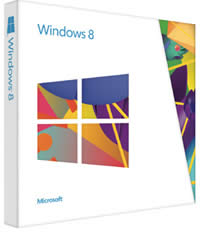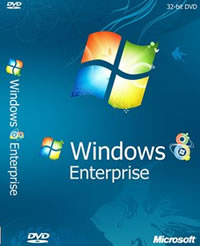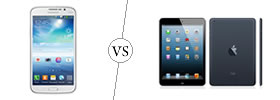Difference between Windows 8 and Windows 8 Enterprise
Key Difference: Windows 8 is known as the ‘core’ version and is the basic version available for the software. Windows 8 is aimed at all the home users and is also available through OEMs on the latest laptops and PCs by the company. Windows 8 offers many of the features that were available on the Windows 7 professional edition. Windows 8 Enterprise is the most expensive edition and offers all the features of the Windows 8 Pro including a few extra features. Windows 8 Pro is not available for retail and can be purchased only through volume licensing by Microsoft’s SA clients.
 Windows 8 is the latest operating system by Microsoft for its PCs, laptops, tablets and smartphones. The operating system was launched in October 2012. The operating system is offered in four different editions, with different price and features. The company has been constantly following this trend of launching various different versions to allow people to pay only for what they need. However, unlike the six versions of its previous operating system; the company has limited the editions to four: Windows 8, Windows 8 Pro, Windows 8 Enterprise and Windows 8 RT. The RT version is only available through OEMs for smartphones and tablets. Windows 8 and Windows 8 Enterprise are two different editions that offer different features.
Windows 8 is the latest operating system by Microsoft for its PCs, laptops, tablets and smartphones. The operating system was launched in October 2012. The operating system is offered in four different editions, with different price and features. The company has been constantly following this trend of launching various different versions to allow people to pay only for what they need. However, unlike the six versions of its previous operating system; the company has limited the editions to four: Windows 8, Windows 8 Pro, Windows 8 Enterprise and Windows 8 RT. The RT version is only available through OEMs for smartphones and tablets. Windows 8 and Windows 8 Enterprise are two different editions that offer different features.
Windows 8 is known as the ‘core’ version and is the basic version available for the software. Windows 8 is aimed at all the home users and is also available through OEMs on the latest laptops and PCs by the company. Windows 8 offers all the features that were available on the Windows 7 professional edition. Features include the new Smart screen, live tiles format, touch capability, built in apps (Mail, Calendar, Messaging, Photos, and SkyDrive), syncing capabilities using cloud network, Internet Explorer 10, Windows Defender, Windows Firewall, Windows Update. It also allows select business features such as ability to join a domain, encrypting the system’s disk using BitLocker, ability to log in PC remotely, Remote Desktop, VPN, ability to combine multiple hard drives into one storage, ability to mount VHD and ISO images. It also offers the multiple language package that enables the user to convert the whole interface in another language.
 Windows 8 Enterprise is the most expensive and the highest edition available on the market. This edition is offers all the features of the Windows 8 Pro and more features. In addition to all the features mentioned above, it also has additional features such as AppLocker, Windows To Go, DirectAccess, BranchCache, the system can be virtualized by RemoteFX and services for the Network File System. Some of the features are quite helpful in terms of big corporations such as DirectAccess, which allows users to access resources inside a corporate network without having to launch a separate VPN. The Windows To Go allows the user to store the whole desktop on a bootable external USB stick for seamless shifting and moving. BranchCache allows the PCs to cache files, websites and other content from central servers so that it is not downloaded again and again. However, this edition also lacks Windows Media Center. The Windows 8 Enterprise is not on the retail market and is only available through volume licensing from Microsoft’s Software Assurance (SA) clients.
Windows 8 Enterprise is the most expensive and the highest edition available on the market. This edition is offers all the features of the Windows 8 Pro and more features. In addition to all the features mentioned above, it also has additional features such as AppLocker, Windows To Go, DirectAccess, BranchCache, the system can be virtualized by RemoteFX and services for the Network File System. Some of the features are quite helpful in terms of big corporations such as DirectAccess, which allows users to access resources inside a corporate network without having to launch a separate VPN. The Windows To Go allows the user to store the whole desktop on a bootable external USB stick for seamless shifting and moving. BranchCache allows the PCs to cache files, websites and other content from central servers so that it is not downloaded again and again. However, this edition also lacks Windows Media Center. The Windows 8 Enterprise is not on the retail market and is only available through volume licensing from Microsoft’s Software Assurance (SA) clients.
The following table has been taken from Wikipedia.
|
|
Windows 8 |
Windows 8 Enterprise |
|
Availability |
Most channels |
Volume License customers |
|
Architecture |
IA-32 (32-bit) or x64 (64-bit) |
IA-32 (32-bit) or x64 (64-bit) |
|
Maximum physical memory (RAM) |
4 GB on IA-32 128 GB on x64 |
4 GB on IA-32 512 GB on x64 |
|
Trusted boot |
YES |
YES |
|
Picture password |
YES |
YES |
|
Start screen, Semantic Zoom, Live Tiles |
YES |
YES |
|
Touch and Thumb keyboard |
YES |
YES |
|
Language packs |
YES |
YES |
|
Updated File Explorer |
YES |
YES |
|
Standard apps |
YES |
YES |
|
File History |
YES |
YES |
|
Refresh and reset of OS |
YES |
YES |
|
Play To |
YES |
YES |
|
Connected standby |
YES |
YES |
|
Windows Update |
YES |
YES |
|
Windows Defender |
YES |
YES |
|
Better multi-monitor support |
YES |
YES |
|
New Windows Task Manager |
YES |
YES |
|
ISO image and VHD mounting |
YES |
YES |
|
Mobile broadband features |
YES |
YES |
|
Microsoft account integration |
YES |
YES |
|
Internet Explorer 10 |
YES |
YES |
|
SmartScreen |
YES |
YES |
|
Windows Store |
YES |
YES |
|
Xbox Live (including Xbox Live Arcade) |
YES |
YES |
|
Exchange ActiveSync |
YES |
YES |
|
Snap |
YES |
YES |
|
Can connect to a VPN |
YES |
YES |
|
Desktop |
YES |
YES |
|
Supported third-party apps |
Windows Store and desktop |
Windows Store and desktop |
|
Remote Desktop |
Client only |
Client and host |
|
Storage Spaces |
YES |
YES |
|
Windows Media Player |
YES |
YES |
|
Encryption features |
|
BitLocker and EFS |
|
Sideload Windows Store apps |
|
Partial |
|
Boot from VHD |
|
YES |
|
Can join a Windows domain |
|
YES |
|
Group Policy |
|
YES |
|
Hyper-V |
|
On 64-bit versions only with SLAT capable CPU |
|
AppLocker |
|
YES |
|
Windows To Go |
|
YES |
|
DirectAccess |
|
YES |
|
BranchCache |
|
YES |
|
Can be virtualized by RemoteFX? |
|
YES |
|
Services for Network File System |
|
YES |
|
Subsystem for Unix-based Applications |
|
Deprecated |
|
Windows Media Center |
|
Can be purchased separately |
Image Courtesy: theverge.com, dasunthathilina.blogspot.com









Add new comment